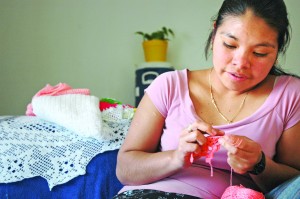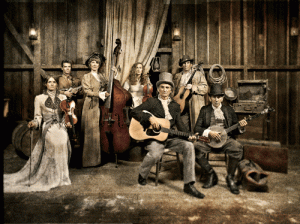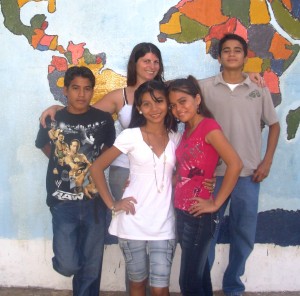Editor’s note: Helen Thorpe, a freelance journalist living in Denver, released her first book, “Just Like Us,” in 2009 to much praise. The book documents the struggles of four young Denver women of Mexican descent adapting to life in the United States. It won the Colorado Book Award and was released in paperback in May 2011.
Helen also happens to be married to Colorado Governor John Hickenlooper.
Colorado Central: What first inspired you to write about immigrant students in Colorado?
Helen: I’ve always been interested in stories about immigration, because my parents immigrated to this country with me when I was a small child. They had legal entry visas, but the experience made me curious to know what it would be like to be brought here without legal status.
At first I was trying to find one undocumented student. And then I stumbled across four close friends, who were divided in terms of their immigration status. Two of the girls had legal status and two did not. Watching them interact illuminated the obstacles that the pair of girls without documents faced, because at every key juncture life was harder for them than it was for the documented girls.
 Eventually, it became clear to me that telling the story of their relationships was the most compelling way to show what the subjective experience of illegal immigration was like, because it was in their daily interactions that the story came to life.
Eventually, it became clear to me that telling the story of their relationships was the most compelling way to show what the subjective experience of illegal immigration was like, because it was in their daily interactions that the story came to life.
Colorado Central: How did you go about finding and choosing the subjects of your book?
Helen: Sometimes you just get lucky.
At the beginning of this project I was in the middle of interviewing perhaps a dozen different undocumented students, in an effort to get a general understanding of their situation. Then a friend of mine told me the story of the four girls. He’d heard about them from a woman who had employed one of the two legal girls. So I had coffee with this student, who turned out to be the young woman that I call Elissa (I’ve changed the names of all of the students). Later Elissa introduced me to her friends. And they are just very charismatic young women. They are bright, charming, personable, funny – the kind of students that manage to charm their teachers and their mentors into becoming their lifelong friends. So I was hooked.
Colorado Central: How you maintained contact with the subjects of your book? If so, how have their lives changed since it was first published?
Helen: I recently reinterviewed all four young women to write an update for the paperback that was just published in May. All four remain in the Denver metro area, and all four still have the same legal status they possessed at the beginning of the story. Clara and Elissa, the two students with legal status, have both been accepted into graduate school. Elissa has completed a masters degree that will allow her to teach. Clara has deferred entry into social work school but expects to go in the near future. Neither Marisela nor Yadira ever applied to graduate school, as their hopes of figuring out how to pay for graduate school dimmed in the face of reality. Marisela and Julio married in 2010, and their son is now one year old. Although Marisela is now the mother of an American citizen, the wife of an American citizen, and the sibling of two American citizens, she still has no way of obtaining legal status herself unless she returns to Mexico and applies from there, according to attorneys she has consulted. She has not done so yet.
Colorado Central: To what do you attribute the rapidly growing child poverty rate in Colorado?
Helen: There’s great information about this available on the Colorado Children’s Campaign web site. I used to be on the board of that organization, and they have done phenomenal work on this subject. The latest Kids Count report addresses the impact of the recession on child poverty specifically, and earlier Kids Count reports addressed the phenomenon as well. Check out: www.coloradokids.org/facts/kids_count/kids_count.html.
Colorado Central: Senate Majority Leader Harry Reid has reintroduced the DREAM Act in the Senate, which would create a path to citizenship for undocumented immigrants currently in college or the military. What are your thoughts on its possibility for passage this time?
Helen: I think it’s inevitable that something like the DREAM Act will eventually pass. It’s just a question of time. There are too many young people with great potential out there, stuck, unable to realize their dreams. And it’s too nonsensical to allow them to remain stuck in their current legal limbo, given the investment of tax dollars this country has already made in their K-12 education. It’ll happen.
Colorado Central: What factors do you see contributing to the demonization of undocumented immigrants, and what would it take to turn public opinion around?
Helen: Most people who are born in the United States have no reason ever to bump into our immigration laws. If you’re born a U.S. citizen, why would you need to know anything about what it takes to become a naturalized citizen? So there is a great lack of understanding around why we have so many undocumented immigrants. For example, every time I speak about the four students in my book, somebody asks why the pair without legal status don’t apply for citizenship. And I have to explain, because they can’t. They’ve visited attorneys, and they’ve been told that for people like them there is no path to citizenship as long as they remain on U.S. soil. This is not well understood. I think mainstream America would have to become familiar with our current immigration laws, and really grasp that undocumented immigrants are stuck in a legal limbo, unable to change their status as long as they hold onto their current jobs here in the United States, before public opinion would begin to shift.
Colorado Central: Was there ever any conflict with your dual roles; that of journalist and that of the spouse of the Denver mayor, and now that your husband has been elected governor do you feel there are certain topics which are “hands off’?
Helen: I did have to wrestle with the question of how to handle the different hats I wear in the context of this project. At the beginning it didn’t seem like it would be such a big issue – when I first started reporting on this subject immigration had not yet become the intensely polarized argument that it is today, and I felt comfortable tackling it as a journalist and didn’t foresee big complications. The subject just wasn’t at the top of the list of things that voters cared passionately about. So initially I imagined that I could write about the girls without ever mentioning my ties to the political sphere. But everything changed during the years that I was reporting on the girls’ lives. The subject of immigration became increasingly politicized, and local political figures were drawn into the debate. In the end, I just decided that politics had to be part of the story, too.
Looking forward, I don’t see any topics as “hands off” unless they involve people who report directly to my husband, or issues over which he has clear and obvious authority. I’d avoid those.
Colorado Central: A stage adaptation of your book has been commissioned by the Denver Center Theater Company. When and where will it premier?
Helen: I am excited about the fact that DCPA has commissioned a stage adaptation of the book. I loved what they did with Plainsong, and can’t wait to see how they handle this. I understand that the play will premier in Denver, and that it could take a year or two before that occurs.
Colorado Central: How involved were you in the adaptation with playwright Karen Zacarias?
Helen: I’ve met with Karen and like her very much. I see this as her project. I am happy to help as she may wish, but I have turned this over to her as she is the person who really understands the stage and what works in that medium. I’ll be a very interested spectator!
Colorado Central: How did you and John (Hickenlooper) meet?
Helen: I was living in Texas at the time. John happens to have a close friend there who is also a close friend of mine. She introduced us. Actually she brought John along to my 37th birthday party. He crashed it – a wonderful surprise gift.
Colorado Central: Here’s a loaded question; do you like beer and if so what is your favorite Wyncoop product and why?
Helen: John loves Railyard Ale but it’s a little strong for me. I really like the Two Guns Pilsner.
Colorado Central: Thank you, Helen!




